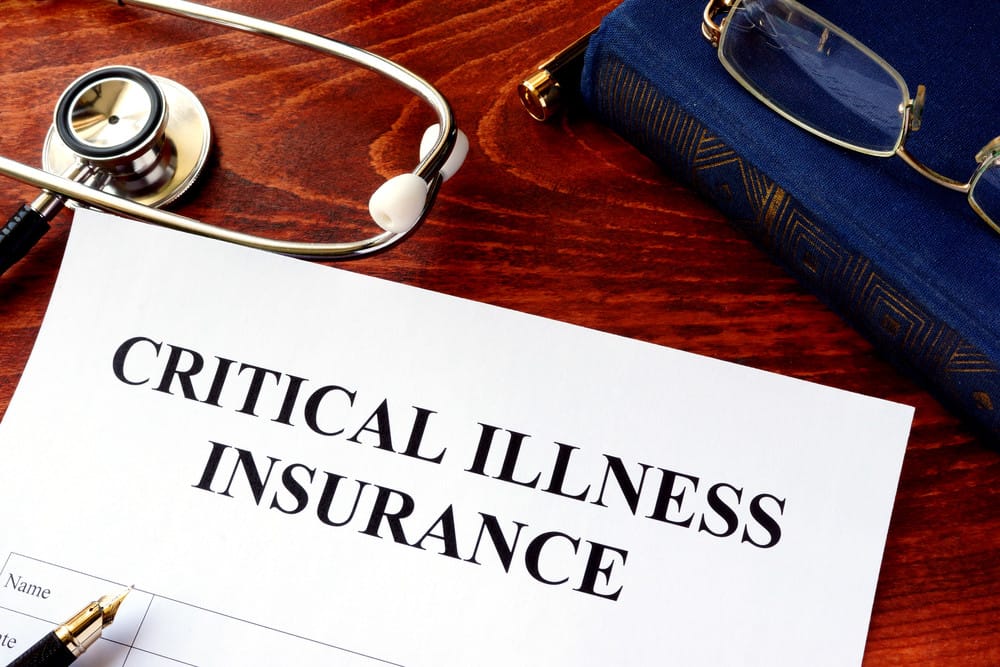The rate of death from heart attack, stroke and cancer have been declining for the past 20 years according to the CDC.
Even though death rates are falling for these critical illnesses, health care related expenses have been rising astronomically.
If you do have enough savings in place this could lead to financial ruins. One way to combat this is by purchasing critical illness insurance. A critical illness insurance policy can provide a lump sum of cash to help with any medical expenses associated with a critical illness.
Below is a list of critical illnesses that most policies cover:
- Heart Attack
- Vision, Hearing, or Speech Loss
- End Stage Renal Disease (Kidney Failure)
- Paraplegia
- Stroke
- Multiple Sclerosis
- Coma
- Stroke
- HIV
- Angioplasty
- Cancer
- Aortic Surgery
- Parkinson’s Disease
- Severe Burns
Critical illness insurance policies provide a lump sum payment when you have been diagnosed with one of the critical illnesses outlined in your policy contract. In your policy contract there is usually a table listing the critical illness and what percentage of the benefit you would receive. The percentage you receive is based on the severity of your medical condition and are set by the insurance carrier. These policies are not treated like disability insurance, so employment is not a requirement.
The benefit you receive from your critical illness insurance policy can be used to pay for anything you like. It pays directly to you, unlike health insurance which pays to the doctor. Always make sure to fully understand what critical illnesses are covered and which ones are not before purchasing a policy.
There are three ways to purchase critical illness insurance coverage:
- Buy a standalone policy
- Add the critical illness rider to your life insurance policy
- Buy through employer’s benefit package and have it payroll deducted.
The benefits of these policies can range from $10K- $1 million. When deciding on an amount it is always good to remember these two debts:
- Credit Cards, Car Payments, and any revolving debt
- The total of 2-3 years of household bills (mortgage, power, water, cable, etc.)
Is there underwriting?
You will be asked for a paramedic exam for both individual and employer provided critical illness insurance policies. These prices are based on you as an individual. Your sex, age, and medical history will be a factor in your rate. If your employer offers a group plan, then you would not have to go through underwriting.
These policies are considered guaranteed issue and the rates are based on your age and the number of employees involved in the plan. The more employees involved the cheaper the rate. Critical illness insurance that occurs before you purchase a policy is excluded on most policies.
Most likely when purchasing one of these policies you will have to answer medical questions and submit lab specimens (urine, blood, & saliva). If you have any pre-existing conditions or a family history of critical illness other tests may be requested.
Yes, you read that correctly, family history can play a role in whether you qualify for a critical illness policy. For example, if you have 2 or more family members diagnosed with cancer before the age of 50, then you could potentially be declined or pay a much higher rate.
Your policy cannot be canceled unless you lied on the application or you don’t pay the premium. They will cancel the policy if you die or if you have received the maximum benefit. If you cancel the policy or never get sick and die you will not receive any of the premiums paid, unless you added the return of premium rider to your policy.
With the return of premium rider if you don’t have a claim and die, all premiums are returned to your beneficiary. The major downfall to this rider is that is can get quite pricey.
When buying a critical illness insurance policy, you will always want to make sure you have a good grasp on these features:
- Make sure you know all the medical conditions covered
- Know when the waiting period starts and ends
- Make sure the benefit is paid in a lump-sum upon diagnosis
- If it covers preventative care
- The rating of the insurance carrier (this ensures claims will be paid)
- Always work with an experienced agent
Critical Illness insurance is a great asset to own. Yes, I consider it an asset, because if you ever diagnosed with a critical illness this policy will save you from financial ruins. With the advancement in technology and medical breakthroughs, these types of policies have become essential to have in your portfolio. If you have any questions or comments, please give us a call.

